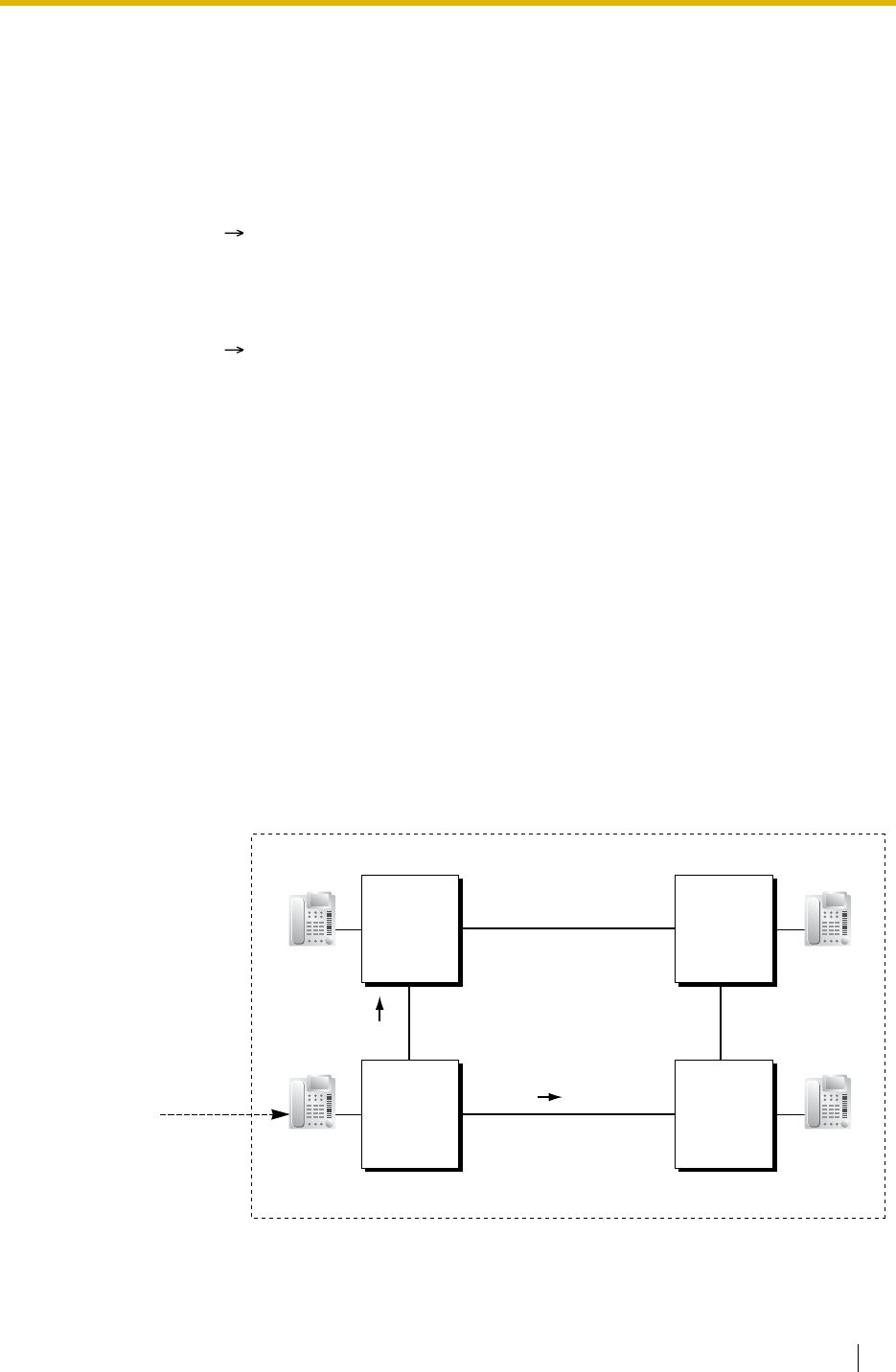
1.28 Networking Features
Feature Guide 249
2. TIE Line Routing and Modification Table
2.1 To Make a TIE Line Call
The TIE Line Routing and Modification Table is referenced by the PBX to identify the
trunk route when an extension user makes a TIE line call.
It is necessary to make unified tables with all PBXs in the TIE line network.
The routing pattern appropriate for each call is decided by the dialled number.
There are two system programmes for the tables:
TIE Line Routing Table: used to assign the leading numbers (PBX code or extension
number) and trunk group hunt sequence.
TIE Modify Removed Number of Digits/Added Number: used to remove digits
from and add a number to the dialled number of the TIE line call. This modification
may be needed depending on the TIE line network configuration.
[Programming Examples]
Your PBX is PBX-1 and there are four PBXs in your TIE line network. To identify the
trunk route as illustrated, you should make the following tables.
a) Extension Number Method (Access without PBX Code)
Explanation:
To use this method, it is necessary to know each PBX code in order to identify the
location of an extension.
Case 1:
Extension 1012 of PBX-1 dials TIE line access number "7", PBX code "952", and
extension number "1011".
Extension 1012 of PBX-1 is connected to extension "1011" of PBX-2.
Case 2:
Extension 1011 of PBX-1 dials TIE line access number "7", PBX code "953", and
extension number "1011".
Extension 1011 of PBX-1 is connected to extension "1011" of PBX-3.
PBX-1
TRG 1
a) 2xxx
PBX-2
PBX-4
TIE Line Network
Extn. 4xxx
Extn. 1xxx
Extn. 2xxx
PBX-3
Extn. 3xxx
c) 4xxx
TRG 2
If you dial:
a) 2xxx
b) 3xxx
c) 4xxx
b-2nd) 3xxx
b-1st) 3xxx
(2, 3, 4: Other PBX
Extension Number
[TIE] in the Flexible
Numbering Plan)


















